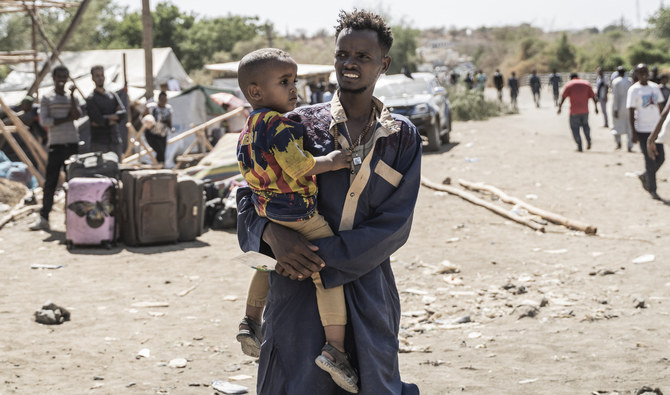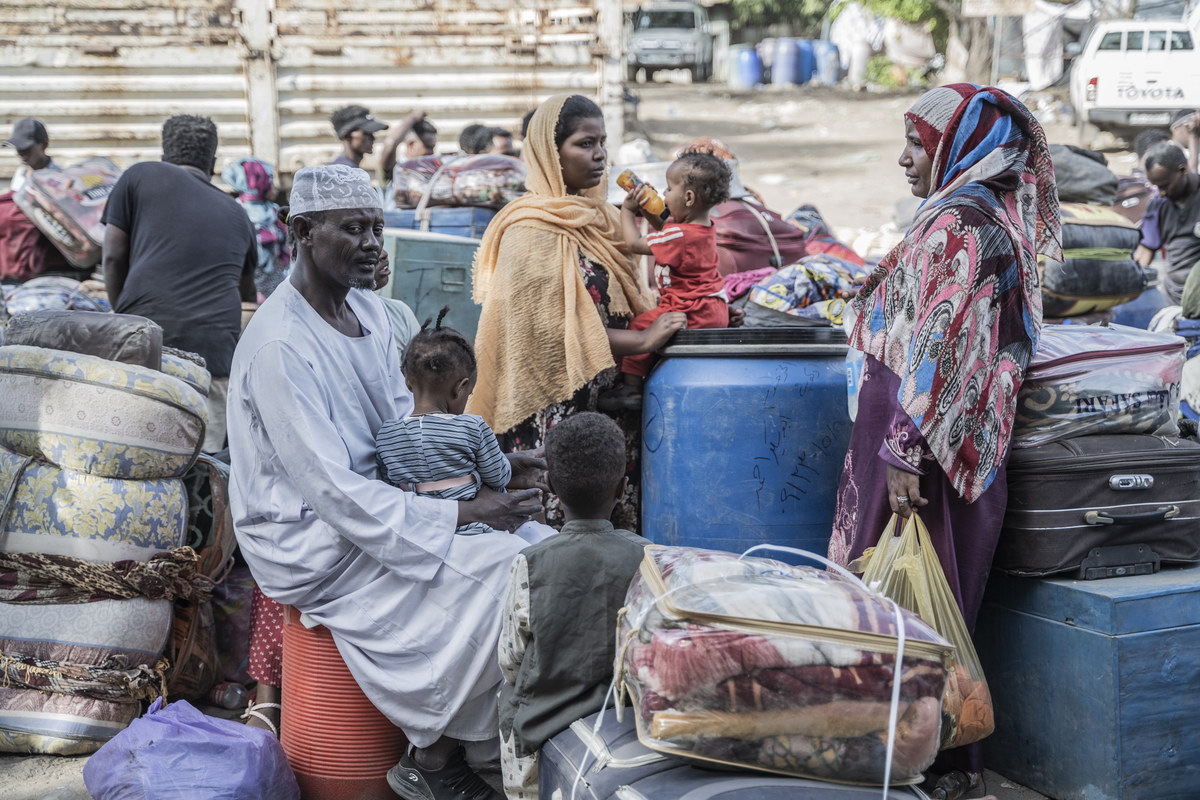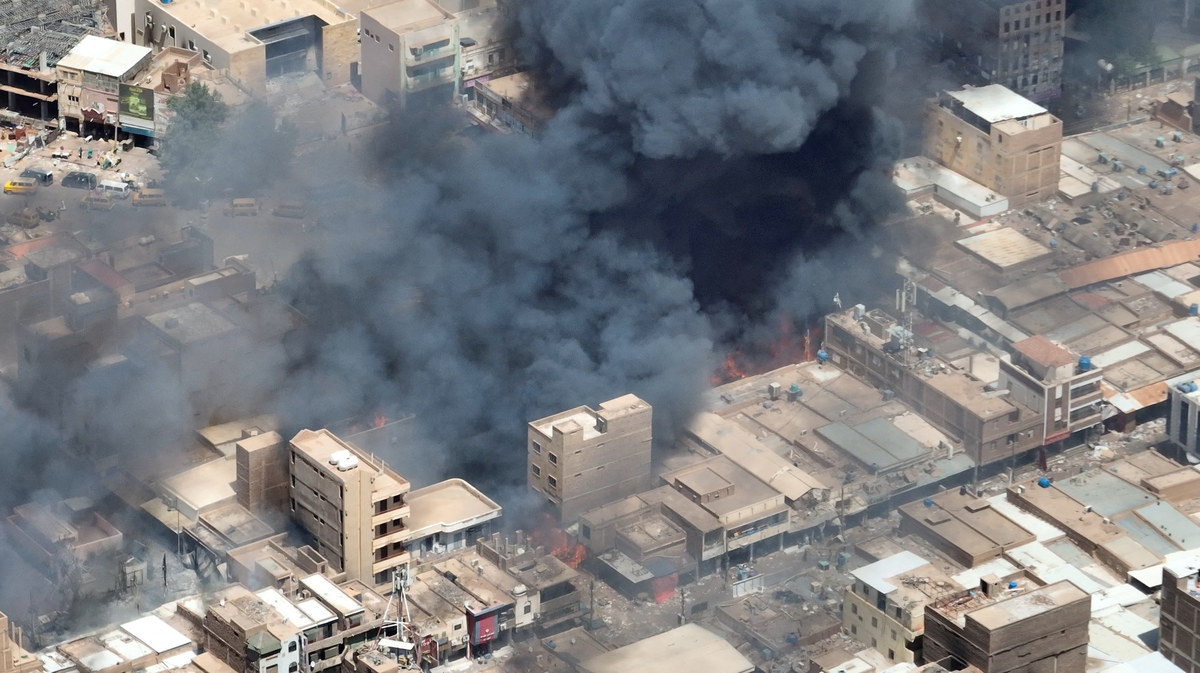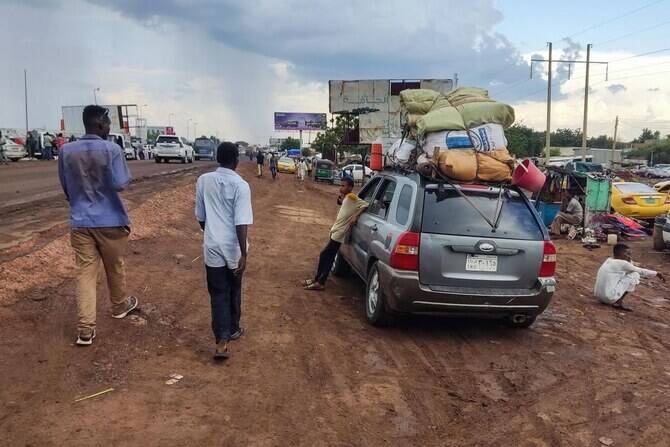Initial clashes between former allies the Sudanese Armed Forces and paramilitary group the Rapid Support Forces have escalated into heavy combat, displacing hundreds of thousands of people from their homes.
Hospitals have been overwhelmed by the numbers of wounded, and disruptions to basic utilities and shortages of medical supplies have forced medical staff to turn away even the critically ill.
Meanwhile, shortages of food, fuel, electricity and clean water, coupled with economic collapse and the breakdown of law and order, have forced entire communities to pack up and leave in search of security and relief.
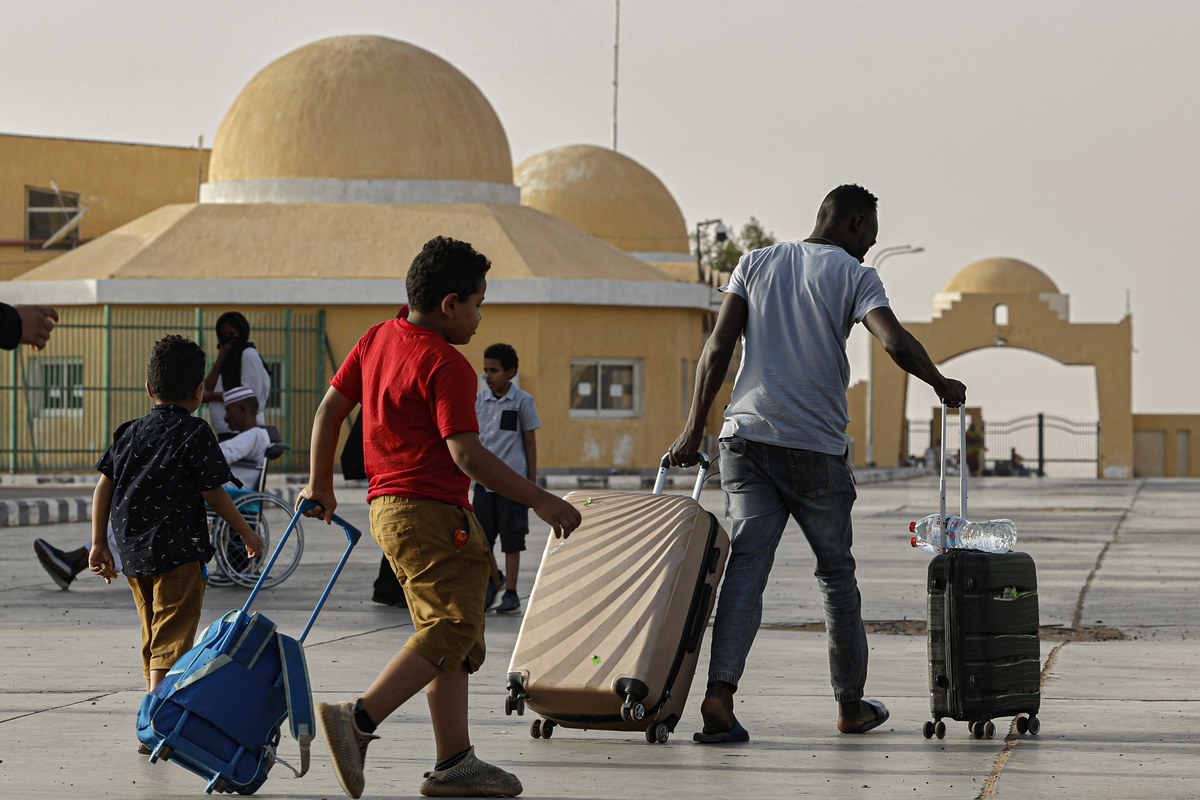
In the first four weeks of the crisis, around 200,000 people fled Sudan while another 700,000 were displaced inside the country. As many as 860,000 refugees and returnees are expected by the UN refugee agency UNHCR to flee by October, raising fears among European policymakers of a new influx of migrants who risk the perilous journey north to their shores.
Europe was forced to confront the issue of mass migration in 2015, when hundreds of thousands of people fleeing war, poverty and persecution in Africa, the Middle East and Asia began arriving from across the Mediterranean.
More recently, the continent has absorbed millions of Ukrainians fleeing the Russian invasion, which has placed additional strain on a continent already grappling with high energy prices as a result of gas shortages.
However, few experts predict Europe will see anything close to the same number of migrants as a result of the crisis in Sudan. Instead, most expect the majority to be displaced internally or settle in neighboring African states.
“Some of the refugees will try to go to Europe, but I don’t see that there will be mass migration going to Europe right now,” Namira Negm, director of the African Migration Observatory in Morocco, told Arab News.
“It will increase but it will not be mass migration. Migration to neighboring countries needs to be addressed first.”
Nevertheless, many in Europe remain fearful that any fresh influx will place additional strains on the resources of host nations, and trigger a surge in anti-immigrant sentiments and support for right-wing populist movements.
In response to previous waves of migration several European nations adopted draconian immigration policies, making it more difficult for new arrivals to obtain asylum and the right to remain. Those who still try to reach Europe face dangerous journeys, including sea voyages in often flimsy and overloaded vessels.
“Reaching Europe would require navigating treacherous and expensive migration routes, often involving perilous sea crossings and facing the risk of exploitation and abuse by human traffickers,” Franck Duvell, a senior researcher at Universitat Osnabruck in Germany, told Arab News.
“Numbers might go up a little, but I don’t see these networks and routes now. Traveling to western Libya has become dangerous and is getting more and more difficult, and therefore (an) increasing number of people actually continue their journey to Tunisia.
“I don’t see Sudanese traveling all the way to Tunisia. It’s simply too far, it’s too expensive, it’s too dangerous … Even if numbers are increasing, the total numbers will still be relatively small.”



